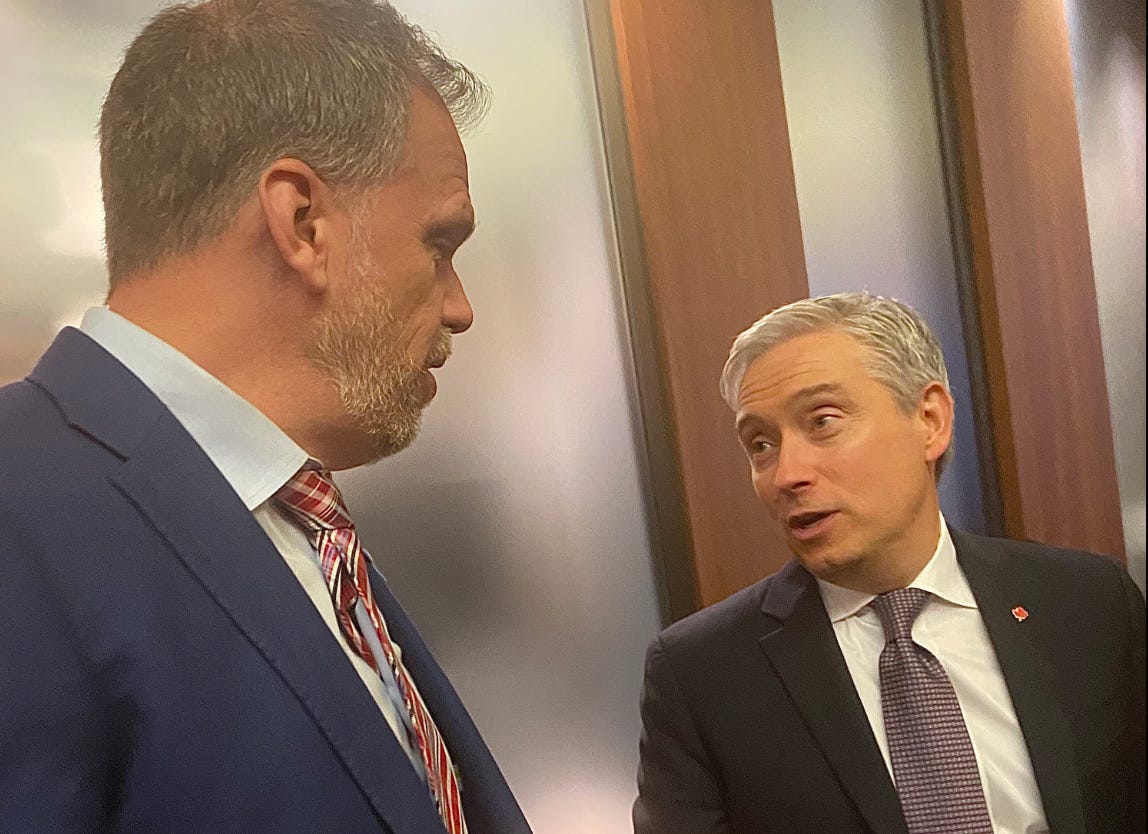Ready for next time. Don't ask about last time
How Canada prepares for the next global killer. And how another government might.
1. Where to knock
We have news on a question I’ve been following for a couple of years now: what the heck Canada will do to ensure we can minimize the damage the next time a bad virus comes knocking.
On Tuesday at the BioNation conference in Ottawa, Industry Minister François-Philippe Champagne and Health Minister Mark Holland “announced the launch” of “Health Emergency Readiness Canada (HERC),” a new agency designed to ensure Canada is, uh, ready for health emergencies.
I’m aware of two news stories that were written about the new thing. One by Boris Proulx at Le Devoir, one by Dylan Robertson at the Canadian Press. Dylan’s story was published by several outlets.
Dylan quotes Champagne saying these reasonable things:
“The danger would have been (that) if we don’t have a permanent agency sitting somewhere, that collective knowledge that we have accumulated during COVID would even be dispersed eventually, perhaps even lost within the civil service,” Champagne told reporters on Tuesday.
“We’re pulling them together in a team so that when people are talking about health, emergency readiness, they know where to knock.”
Let me tell you what I’ve learned about this new agency. And then, for those who haven’t followed my post-COVID coverage obsessively, I’ll share why I’m interested.
The new agency doesn’t exist yet. Champagne and Holland were announcing an intention, with many details still to come. They caught just about everyone who follows public-health policy in Canada by surprise. This includes people at the think tank that has been calling for the creation of such an agency for a year.
The agency is widely seen to be a good idea by the sort of people who would see such an agency as a good idea, including me. If anything, it allows Canada to begin to catch up to peer jurisdictions abroad, which moved to create similar agencies at the peak of the crisis. Everyone’s catching up to the Americans, who’ve had such an agency, called BARDA, since 2006. The UK and the European Union started setting theirs up in 2021.
So to the extent there’s a trend, Canada is three years behind it. (Japan announced plans for their own agency five months ago.) Indeed, the loss of “collective knowledge” that Champagne warned about is already underway. It may not be too late to get it back.
If the Liberal government is defeated in the meantime, would a Conservative government continue the work? Excellent question. It should. The U.S. agency was set up under George W. Bush, the Brits’ under Boris Johnson, and the Europeans’ under Ursula von der Leyen, a German Christian Democrat, but I wish I could be more confident than I am that a Poilievre Conservative government would follow their lead. Discussion of all of this follows below.
Also, for regular readers, I’ve got an update on Dr. Walport. It isn’t encouraging. I mean, he’s fine! But Canada isn’t getting better at the accountability he was hired to provide.
Keep reading with a 7-day free trial
Subscribe to Paul Wells to keep reading this post and get 7 days of free access to the full post archives.


